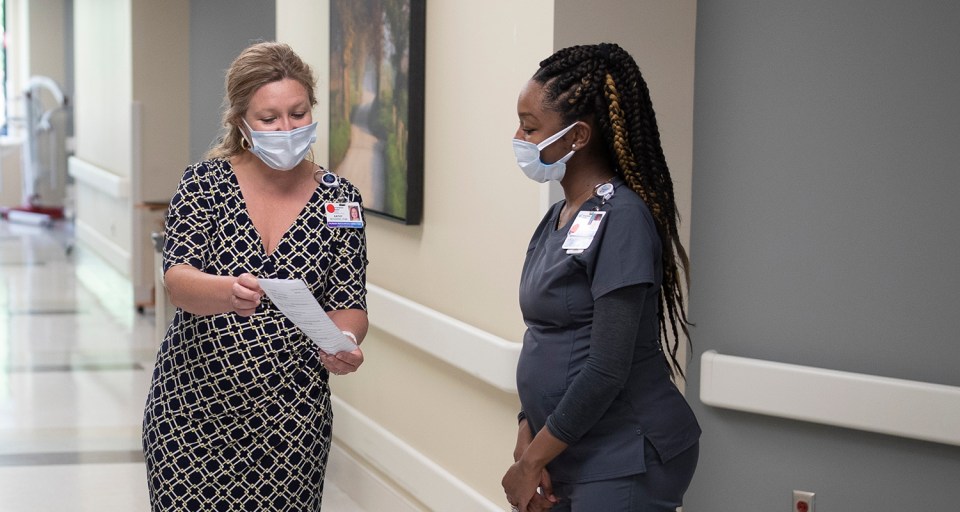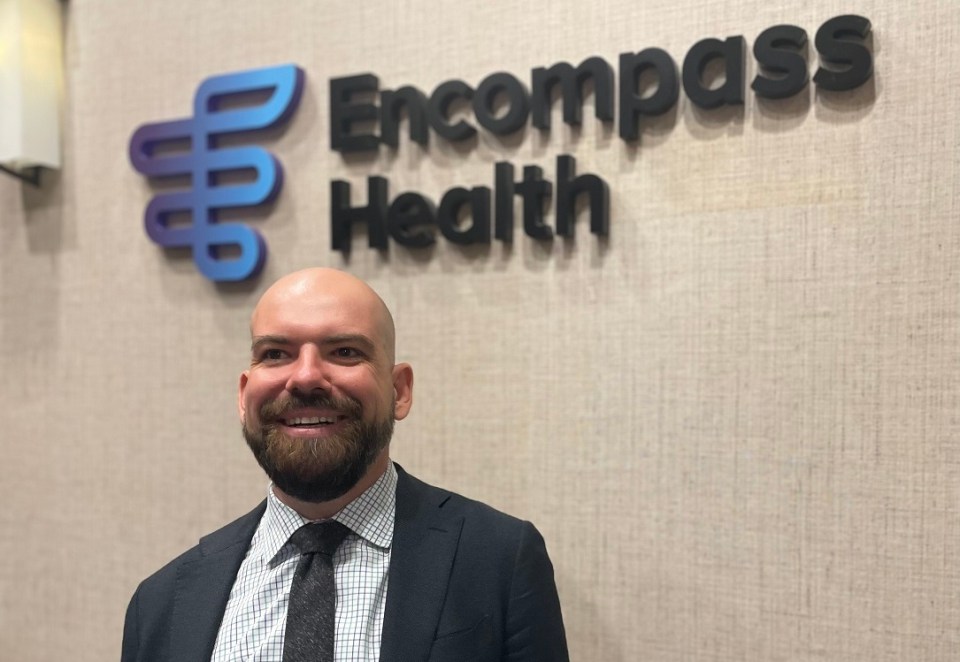Transitions of care have emerged as an important point of vulnerability in the current healthcare system that can lead to errors or even clinical decline in patients.
Recent studies show that over 25 percent of care transitions fail for a variety of reasons such as underdeveloped discharge plans, ill-prepared caregivers, inappropriate home environments or medication noncompliance.
The need for high-quality transitional care is especially important among older adults with chronic conditions or recovering from recent surgery, as well as their caregivers. These patients typically receive care from many providers and move frequently within healthcare settings.
Encompass Health’s Care Transitions Program
The home health and hospice team at Encompass Health offers a Care Transitions Program that specifically aims to complement patients’ discharge plans and help reduce hospital readmissions among older adults.
“A key benefit of our Care Transitions Program is risk stratification,” said Ashton Richards, regional director of care transitions at Encompass Health – Home Health & Hospice. “We are able to identify potential barriers and help provide resources to ensure patients transition home as safely as possible.”
The role of the care transitions coordinator (CTC)
Through the program, a care transitions coordinator (CTC) is designated to each patient who is transitioning from a hospital to home health or hospice care provided by Encompass Health. CTCs are licensed nurses or therapists who use evidence-based clinical guidelines, preventative guidelines, protocols and other metrics to develop patient-centered transitional plans that promote quality and efficiency.
“Our CTCs are available daily and can meet regularly with hospital staff to present and discuss patient outcomes,” said Richards. “This truly helps us enhance the collaboration of care.”
Another unique ability of the Encompass Health Care Transitions Program is the partnership between Encompass Health’s network of inpatient rehabilitation hospitals.
How CTCs support the patient experience
“The ability to help patients transition from our inpatient rehabilitation hospitals to our home health or hospice services allows us to get involved earlier in the transition process and sets the patient up for success,” said Richards.
When patients choose to use Encompass Health for their inpatient rehabilitation and home health or hospice care, the care transitions team is able to follow set processes established by both care settings to enhance clinical collaboration. This includes monthly partnership meetings, access to the patient’s electronic medical record and even getting to observe patients during rehabilitation sessions.
Once the patient is discharged from the hospital, CTCs provide the home health and hospice team with everything they need to transition the patient home safely, including a comprehensive overview of the patient’s medical history.
They also conduct a follow-up call 24-48 hours after discharge. If the patient answers unfavorably to a question, the CTCs work with the home health or hospice team to triage the potential risk to avoid preventable readmissions.
“The risk stratification process takes a true team effort,” said Richards. “By working together with our inpatient rehabilitation hospitals, our CTCs can take a coordinated approach to care and ensure continuity between care settings.”
Suzanne Jones, care transitions coordinator, recently had a patient who was discharging from an Encompass Health inpatient rehabilitation hospital in Texarkana, Texas.
On the patient’s day of discharge, the hospital case manager found out that the patient had been evicted from her home and had no place to go. Jones and the case manager immediately put their heads together to find alternative options for the patient.
“I reached out to our area manager who works with local senior living communities in the area to see if there were any in town that could accept our patient,” said Jones. “She not only gave me the names of several, but also reached out to these communities to see if they had any availability.”
The Encompass Health team continued to work closely with the patient to ensure all necessary paperwork and insurance obstacles were taken care of. A few days later, the patient left the Encompass Health hospital and went to her new home to be cared for by the Encompass Health home health team.
“If it wasn’t for the collaboration and effort from everyone involved, who knows what this patient’s outcome may have been,” said Jones.
Historically, patients who choose both Encompass Health for their inpatient rehabilitation and home health or hospice care generally have higher satisfaction rates.
“At the end of the day, our main goal is to help our patients stay in their most comfortable environments – their homes,” said Richards. “We are proud to provide a better way to care alongside our inpatient partners to help patients achieve their best outcomes.”
The content of this site is for informational purposes only and should not be taken as professional medical advice. Always seek the advice of your physician or other qualified healthcare provider with any questions you may have regarding any medical conditions or treatments.



